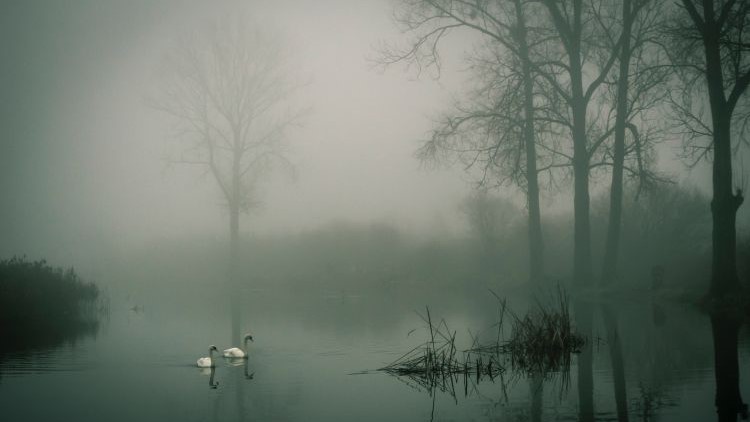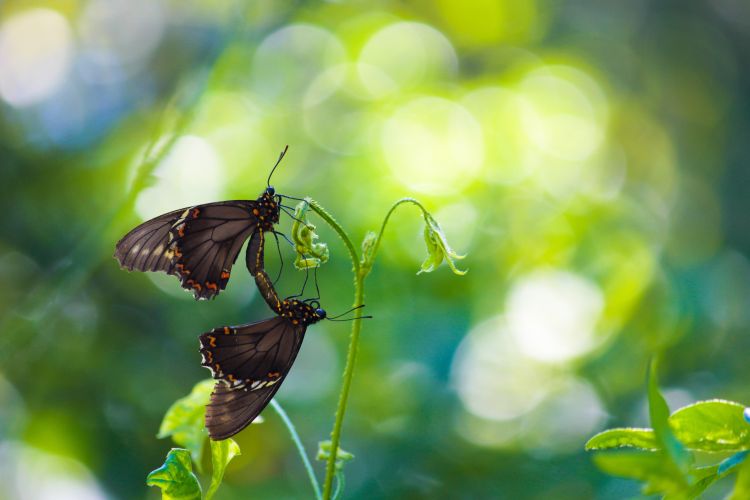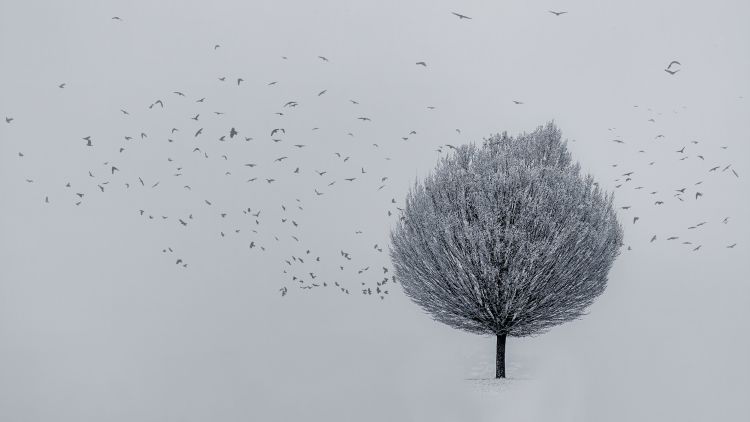The Philosophy of Seasonal Affective Disorder (SAD)

Light, growth, bloom; dark, decay, gloom. (Karol Wiśniewski/Pexels)
Do you get SAD? No: not sad; SAD, appropriately abbreviated from ‘seasonal affective disorder’. It’s a form of depression that tracks seasonal patterns. The greatest energy-sapping months usually come during winter, when serotonin activity decreases and melatonin is overproduced. Sometimes SAD is referred to as the ‘winter blues’. Along with medication, treatments include counselling and phototherapy (exposure to artificial light).
But beneath the clinical manifestations of SAD there is something more existential in action which consists in our relation to nature: sufferers of SAD express disconnection from a now-decaying world they had found value in.
Do you feel it, too? Then read on.
In bloom

‘Dragonfly out in the sun, you know what I mean, don't you know / Butterflies all havin' fun, you know what I mean / Sleep in peace when day is done, that's what I mean / And this old world is a new world / And a bold world / For me’ — the lyrics from ‘Feeling Good’, written by Anthony Newley and Leslie Bricusse, cry beauty. What, then, are we to do when this beauty retreats? (Ric Rodrigues/Pexels)
In contrast to winter, summer shines through spring to cast new beginnings.
The long days sustain our joy. In them we become used to growth; we are promised rejuvenation and new life.
Fish in the sea
You know how I feel
River running free
You know how I feel
Blossom on a tree
You know how I feel
It's a new dawn
It's a new day
It's a new life
For me
And I'm feeling good
But as summer draws to a close those who are susceptible to SAD prepare themselves for a long battle, enduring coldness, darkness, and lifeless landscapes.
Winter’s cold hand beckons through autumn. The sun withdraws its light. Nature begins to shed.
In doom

Winter. (Vaidas Vaiciulis/Pexels)
The symptoms of SAD are like those of regular depression. They include a loss of interest in things from which you usually take pleasure, bouts of worthlessness, and feelings of despair.
Its prevalence varies in response to an array of factors. For example, women are four times more likely to be affected than men. Those farther from the equator are more likely to struggle (e.g. 9 % of Alaskans vs. 1 % of Floridians). No wonder my grandmother moves from the United Kingdom to Spain for a month or so each year. (My mother, meanwhile, uses a special lamp in her bedroom.)
Perhaps nature’s descent, its ramping down, reminds us of our own morality and finitude. Our bodies—like trees—age. Like them, we are disfigured and, gradually, we lose our adornments.
For victims of SAD the heavy feelings induced may be too difficult to shake off.
At thunder and tempest,
At the world’s cold-heartedness,
During times of heavy loss
And when you’re sad
The greatest art on earth
Is to seem uncomplicatedly gay.
Is there a way to take solace from nature’s recurrent destruction? After all, many people do seem to love autumn and winter. Are they immune to SAD or do they lack introspection? Perhaps they do experience SAD in reverse when the world deprives them of crunchy, brown leaves, the pattering of rain against the window, and snow.
In line with Japanese aesthetic wabi-sabi, we can also embrace death in its natural forms. Life, by its very nature, is imperfect and short-lived. Nothing lasts; nothing is finished. We ought to detach ourselves from the material world which causes us to experience losses therein by stepping above it. This approach is about changing our relation to nature. Instead of attempting to excavate humane reasons from nature’s callous currents, we move with them.
But this won’t do, at least for me. I am engaged with this world, in which I am the source of my reasons and significations. I have created valued in it. I can’t disarm my love of nature, its flourishing, of life.
Consider this story, to which I really relate, told by Sigmund Freud, of a poet thought to be Rainer Maria Rilke, who clearly saw injustice in nature’s inherent brutality:
I love my life. But this puts me in a position of fearing for it. My positive evaluation of life may explain why I collect things, why I still hope for intrinsic value, and why I loathe to think about time’s passing: I long for the permanence of my values. What’s the point of discovering value in the world only to have time eventually expose the futility and remove the meaning from beneath your feet?
Similarly, I long for spring and summer to stay. But they won’t and I can’t change that. Neither can I prevent the meaning I imbue into the world from eventually dissipating to nothing.
My SAD consists in my fears being actualised.
A childish beauty
I will finish with a final thought, thanks to Simone de Beauvoir, on the transition from ignorance to fear.
Beauvoir argues that life is not intrinsically meaningful. However, the authentic life, she says, is achievable. We create value with our projects. We do this through the accomplishment of freedom and subjectivity. She contrasts this with the ‘absolute existence’ children see, which she notes upon in her book Pyrrhus and Cineas:
In other words, he can always ask: what’s the point?
This passage is a wonderful illustration of how we, through our own imaginations, lose our innocence because we place value in the world! We have something to lose. This something is always at stake. And so there isn’t much more to say, except for what follows.
Long may you love your life, too. Be brave and be patient, for there is another side. More joy will come again.
Oh my love
Look and see
The Sun rising from the river
Nature's miracle once more
Will light the world
